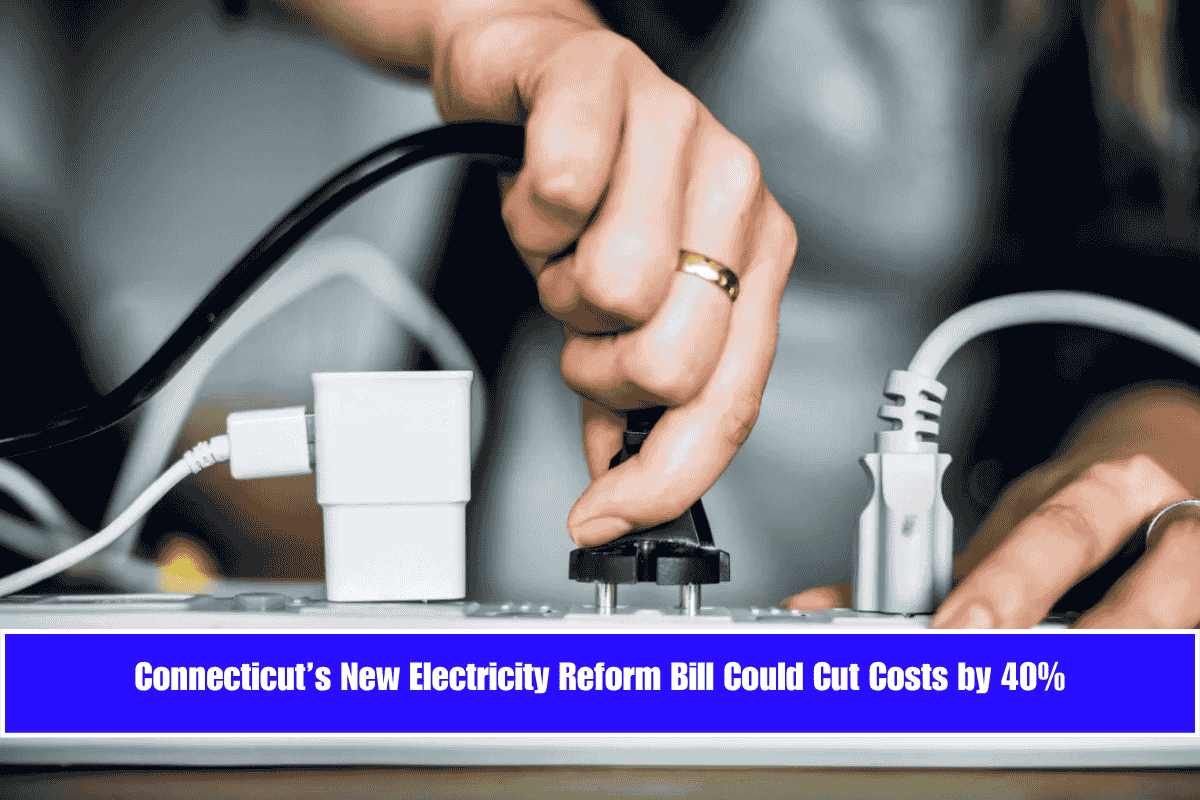A major new bill in Connecticut aims to reduce electricity costs and fix issues in how energy is bought and paid for. Lawmakers are hopeful that the bill—Senate Bill 1560—could reduce power bills by up to 40% over the next two years. The bill introduces a new agency that would take charge of electricity rates and improve how energy is managed across the state.
What Is SB 1560 About?
The 80-page bill proposes the creation of a new independent body called the Connecticut Electricity Procurement Authority (CEPA). CEPA’s main job would be to manage how electricity is purchased and to improve how costs are recovered from customers. The goal is to make energy more affordable, reliable, and environment-friendly.
The agency would focus on:
- Smart energy planning
- Encouraging energy use during off-peak hours
- Supporting solar and other clean energy sources
- Improving how electric infrastructure is used
How Will CEPA Work?
CEPA would be run by a seven-member board. One of its big ideas is “time-of-use” pricing, where people pay different rates depending on when they use electricity. For example, using electricity during peak hours could cost 300% more than off-peak times.
Senator John Fonfara, who supports the bill, said that current electricity systems are outdated. He believes that CEPA will help modernize the grid and bring new ideas, especially as more people are installing solar panels on their homes. He described homes with panels as “mini power plants” and said CEPA would make better use of the energy they produce.
Key Features of the Bill
The bill also includes:
- Two special funds: One to keep rates stable, and another to support smart meter rollouts
- A statewide public awareness campaign to explain time-of-use pricing
- A new municipal energy cooperative to help reduce standard service costs
Additionally, the bill supports bond-based funding. It removes the systems benefit charge and replaces it with funds raised through Green Bonds—allowing up to $2.4 billion in new bonds, although spending is capped at $800 million per year.
Controversy Around the Bill
While the bill has support from both Republicans and utility companies like Eversource and United Illuminating, it has faced strong opposition from environmental groups, solar companies, and state agencies.
The Sierra Club and Connecticut’s DEEP warned that these new bonds could hurt other important environmental programs and increase long-term state debt. DEEP also criticized the bill for giving CEPA too much freedom and not requiring it to follow the same transparency rules as other government departments.
Solar Industry Pushback
Solar companies are especially unhappy. A section of the bill removes the ability to apply solar credits to delivery charges, which could hurt families with solar panels, especially low- to middle-income households.
Nick King from Everlast Energy said the bill is a “backdoor attempt to kill net metering,” which helps homeowners save money by using the energy they generate from solar panels.
Utility Companies Back the Bill
On the other side, Eversource supported the plan, saying it would lower bills by $40 to $50 a month and help solve the real issues—like falling electricity sales and rising grid costs. They also liked the bond-funded approach, as it replaces customer charges and supports cleaner energy efforts.
Connecticut’s SB 1560 could be a big step towards modernizing the state’s energy system and lowering costs. However, the bill has sparked strong debate between lawmakers, energy companies, solar businesses, and environmentalists. While utilities see it as a way to cut costs and update old systems, critics worry about long-term debt and the future of solar energy. As the proposal moves forward, many eyes will be watching how it impacts both the environment and everyday consumers.


















Leave a Reply